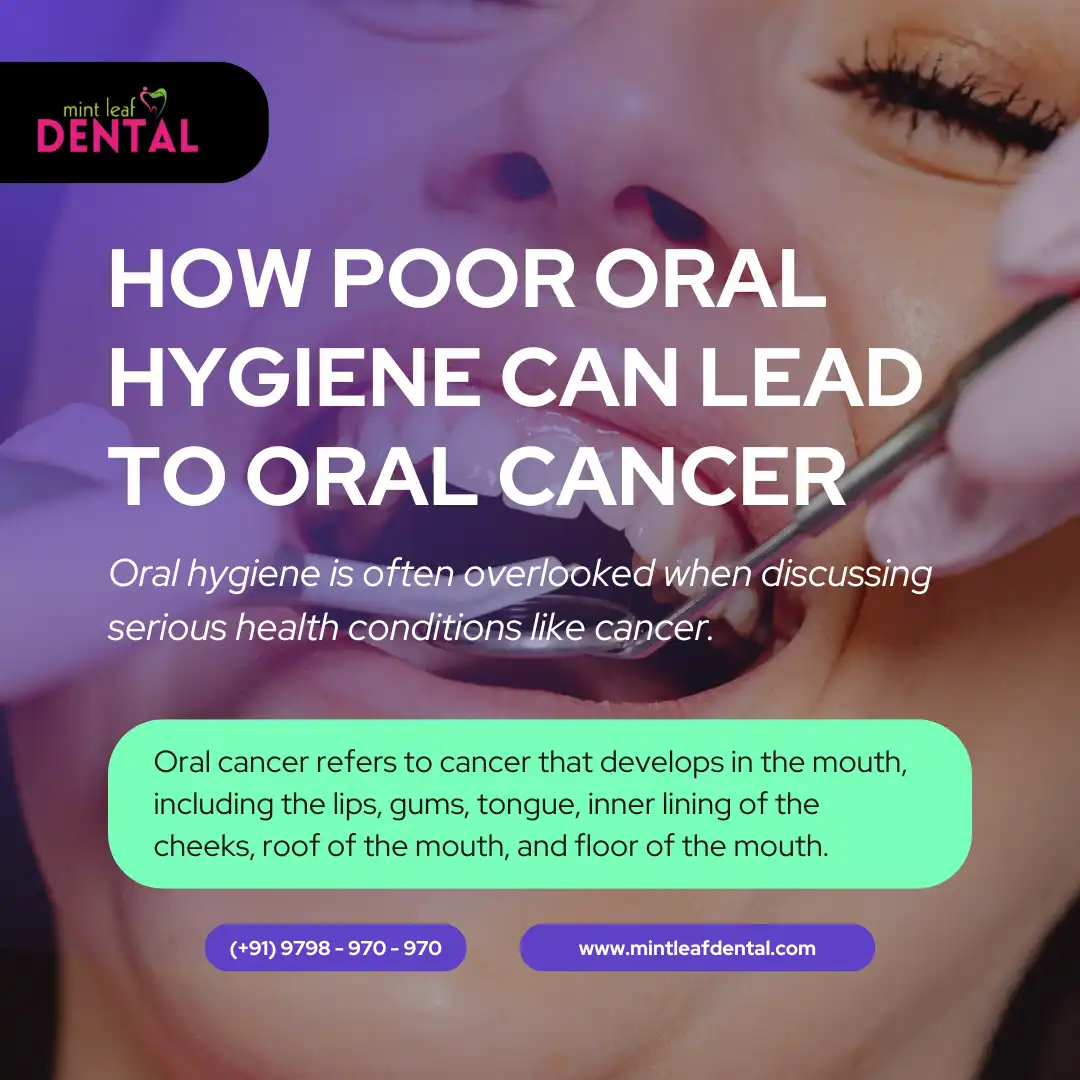How Poor Oral Hygiene Can Lead to Oral Cancer: A Hidden Risk You Shouldn’t Ignore
Discover how poor oral hygiene can lead to oral cancer. Learn signs, causes, and preventive steps to protect your oral and overall health.
Oral hygiene is often overlooked when discussing serious health conditions like cancer. Most people associate brushing and flossing with avoiding cavities or bad breath—but what if poor oral hygiene could lead to something far more dangerous, like oral cancer?
According to the World Health Organization, over 377,000 new cases of oral and lip cancers are diagnosed worldwide each year. Many of these cases are preventable, and one of the most overlooked risk factors is poor dental hygiene.
In this article, we will explore how poor oral hygiene can contribute to the development of oral cancer, the biological connection, early warning signs, and how you can take proactive steps to protect yourself.
What is Oral Cancer?
Oral cancer refers to cancer that develops in the mouth, including the lips, gums, tongue, inner lining of the cheeks, roof of the mouth, and floor of the mouth. It is a type of head and neck cancer and can be life-threatening if not diagnosed and treated early.
Common Types of Oral Cancer:
Squamous cell carcinoma (most common)
Verrucous carcinoma
Minor salivary gland carcinomas
The Link Between Poor Oral Hygiene and Oral Cancer
1. Chronic Inflammation
Poor oral hygiene leads to the accumulation of plaque and tartar, which harbor harmful bacteria. These bacteria cause gum diseases like gingivitis and periodontitis, which result in chronic inflammation.
Chronic inflammation is a well-known factor in cancer development. It promotes cellular mutations, DNA damage, and abnormal tissue growth—key processes in carcinogenesis.
2. Bacterial Toxins and Carcinogens
Certain oral bacteria such as Fusobacterium nucleatum and Porphyromonas gingivalis produce toxins and enzymes that damage cells and suppress the immune system. These microbes are also implicated in promoting tumor growth and metastasis in oral and digestive cancers.
Additionally, poor oral hygiene increases the risk of secondary infections like HPV (Human Papillomavirus) in the oral cavity—a major risk factor for oral cancer.
3. Immune Suppression
When the oral cavity is constantly battling infection due to poor hygiene, the immune system becomes overworked. This immune exhaustion reduces the body’s ability to identify and eliminate precancerous or cancerous cells at an early stage.
Other Risk Factors That Worsen With Poor Oral Hygiene
While poor oral hygiene itself is a risk factor, it also amplifies other carcinogenic exposures, including:
– Tobacco Use
Smokers or tobacco chewers who also neglect oral care are at substantially higher risk of developing oral cancer due to increased exposure to carcinogens and the reduced healing capacity of the gums.
– Alcohol Consumption
Alcohol dries out the mucosal lining of the mouth, making it more susceptible to irritation and carcinogens, especially in individuals with poor dental hygiene.
– HPV Infections
As mentioned, poor hygiene fosters an environment conducive to viral infections, particularly HPV-16 and HPV-18, which are known to cause oral and oropharyngeal cancers.
Early Signs and Symptoms of Oral Cancer
Recognizing early signs of oral cancer can save lives, especially when combined with proper oral care:
Persistent mouth sores or ulcers that don’t heal
Red or white patches in the mouth
Bleeding gums without reason
Lumps, thickening, or rough spots on gums or inner cheeks
Difficulty in chewing, swallowing, or speaking
Loose teeth or jaw stiffness
Persistent bad breath despite good oral care (may indicate deeper issues)
If any of these symptoms persist for more than 2 weeks, consult a dentist or oral health specialist immediately.
The Importance of Oral Cancer Screening
Oral cancer screening is a painless and non-invasive procedure performed by dental professionals to look for signs of cancer or precancerous conditions. Early detection significantly improves survival rates.
Screenings include:
Visual exam of the lips, cheeks, gums, and tongue
Feeling for lumps or irregular tissues
Using special lights or dyes to identify abnormal cells
Make oral cancer screenings part of your annual dental visit, especially if you fall into a high-risk group.
Book Your Wisdom Tooth Consultation Today!
Delaying routine checkup can lead to serious oral health problems. If you’re in Gurgaon and need affordable, high-quality care, Mint Leaf Dental Clinic is your best choice.
While poor oral hygiene may seem like a minor issue, it can have life-altering consequences. The link between poor oral health and oral cancer is now backed by solid research and real-world evidence. Prioritizing dental hygiene isn’t just about avoiding cavities—it’s about protecting your overall health and potentially saving your life.
Remember: A healthy mouth is a gateway to a healthy body.

